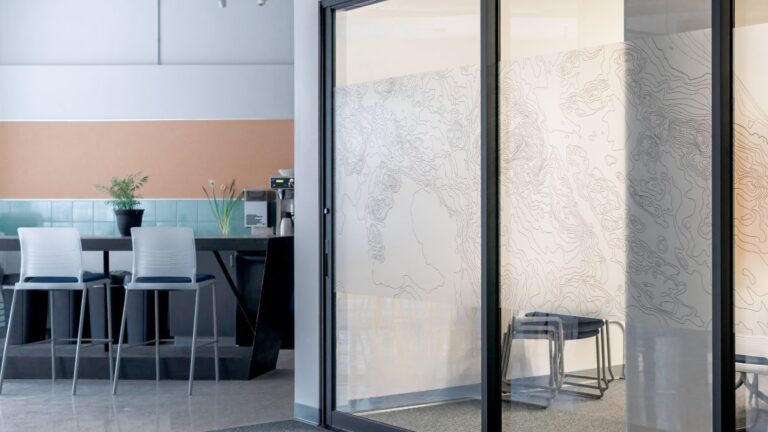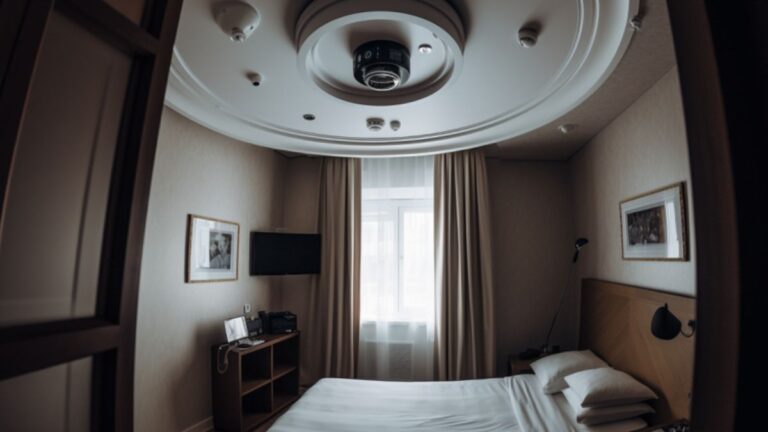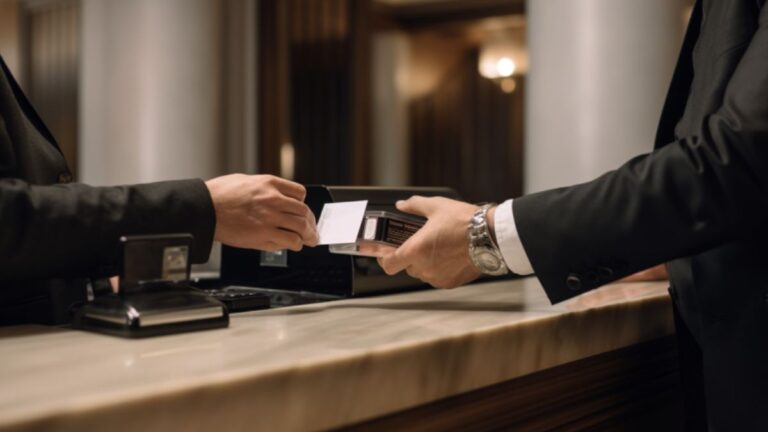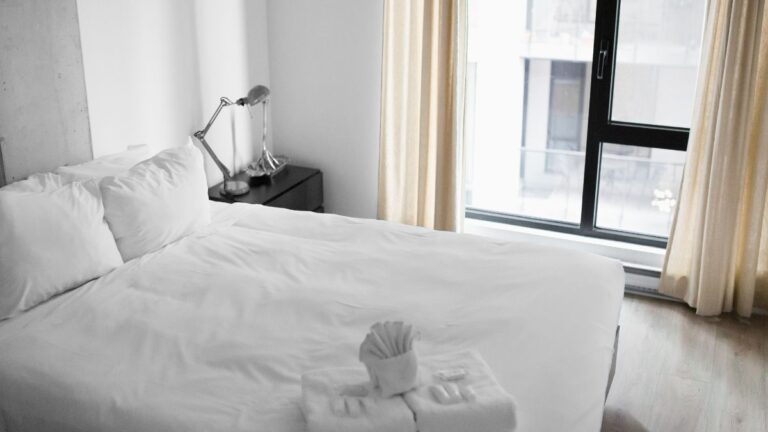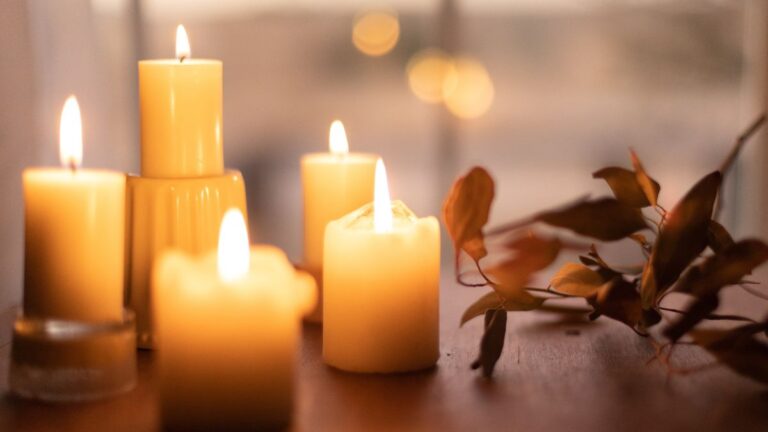What Time Do Hotel Bars Open And Close?
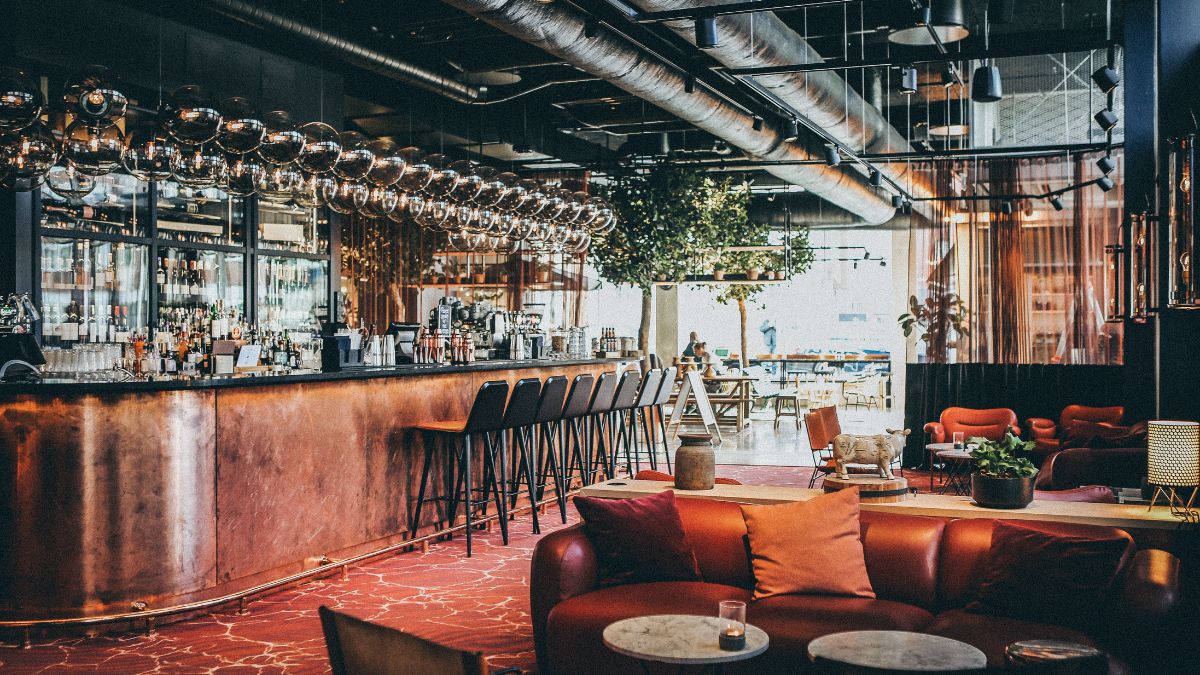
As participants in Amazon Associates and other programs, we earn from qualifying purchases. This comes at no additional cost to you. For more details, see our Affiliate Disclosure.
Whether you’re a business traveler seeking a post-conference wind down, a tourist looking to quench your thirst after a day of sightseeing, or simply a local wanting to experience the ambience of a sophisticated hotel bar, knowing the opening and closing times of hotel bars can be quite essential. These times can vary widely based on the hotel’s location, its target audience, local regulations, and cultural norms.
This article delves into the factors influencing the operational hours of hotel bars and provides a comprehensive guide on what to expect.
What Time Do Hotel Bars Open?
Hotel bars are a ubiquitous feature of the hospitality industry, offering guests a convenient place to unwind, socialize, and enjoy a range of beverages. However, their opening times can vary based on various factors. Here’s a comprehensive overview of the typical opening hours of hotel bars and the elements influencing them.
Standard Opening Times
In general, many hotel bars in urban settings open in the late morning or early afternoon, around 11 am or 12 pm, coinciding with lunch hours. However, this can vary based on the hotel’s target audience and location.
Breakfast & Brunch Service
Some hotel bars, especially those in upscale establishments, may open earlier, around 7 am or 8 am, to serve breakfast or brunch cocktails like mimosas and Bloody Marys.
Resort Hotels
In resort settings, where guests are often looking for leisure and relaxation throughout the day, bars might open as early as 10 am, especially poolside or beach bars.
Business Hotels
Bars in business-oriented hotels might open later, around 4 pm or 5 pm, to cater to guests returning after a day of meetings or conferences.
Local Regulations
The opening time for hotel bars can be influenced by local licensing laws. Some cities or countries have specific regulations about when alcohol can be served.
Guest Preferences
Some hotels adjust their bar opening times based on feedback from guests or observed preferences. For instance, if guests frequently request beverages earlier in the day, a hotel might decide to open its bar earlier.
Special Events
If a hotel is hosting an event, conference, or celebration, the bar might open earlier to accommodate attendees or participants.
Cultural Considerations
In some cultures or regions, especially where afternoon tea is popular, hotel bars might start service in the early afternoon to serve tea and transition to alcoholic beverages later.
Operational Factors
The hotel’s operational considerations, such as staffing and inventory management, can also play a role in determining the opening time for the bar.
While there’s a general timeframe during which many hotel bars open, the exact time can vary widely based on several factors. It’s always a good idea to check with the hotel directly or refer to their website.
What Time Do Hotel Bars Close?
The closing times of hotel bars, just like their opening times, are dictated by a myriad of factors. From the type and location of the hotel to local regulations and cultural practices, several considerations determine when the last call is announced. Here’s a breakdown of typical hotel bar closing hours and the influencing elements:
Standard Closing Times
Generally, hotel bars in urban settings might close between 11 pm and 1 am. However, the exact timing often depends on the typical clientele and the local norms of the region.
Luxury Resorts and Destination Hotels
In high-end resorts, especially those in popular tourist destinations or isolated locations, bars might remain open later, even up to 2 am or 3 am, to cater to the vacationing crowd.
Business Hotels
Given their target clientele, bars in business-focused hotels may wrap up earlier, around 11 pm or midnight, to ensure a tranquil environment for guests.
Local Regulations and Licensing
Hotel bars must adhere to local licensing laws, which can set mandatory closing times. Some cities or countries might have stringent rules about when alcohol sales must cease.
Guest Demand and Occupancy Rates
If a hotel is fully booked or has a significant number of guests requesting extended bar hours, management might decide to keep the bar open for longer.
Safety and Security Concerns
In areas with security issues or higher crime rates, hotel bars might opt for earlier closing times to ensure the safety of guests and staff.
Cultural and Regional Practices
In some regions, nightlife starts late and goes on until the early morning hours. Hotel bars in such areas might adjust their closing times accordingly.
Special Events or Private Parties
If a hotel bar is hosting a special event, private party, or celebration, it might remain open beyond its standard closing hours, sometimes even till dawn.
Operational and Staffing Considerations
Keeping the bar open requires adequate staffing. If there’s a shortage of staff or operational concerns, the management might decide on an earlier closing time.
Weekdays vs. Weekends
Many hotel bars extend their operational hours on weekends to accommodate the increased demand and the general trend of staying out later.
While many hotel bars have a standard closing time, numerous factors can influence this decision. For guests looking to enjoy late-night drinks, it’s advisable to check the hotel’s bar operational hours in advance, either through direct communication or by referring to the hotel’s website or promotional materials.
Time Zones and Jet Lag: Catering to international travelers
As global travel becomes more accessible and commonplace, hotels often find themselves hosting guests from various time zones. This global confluence brings its unique set of challenges, with jet lag being a prominent one.
Hotel bars, positioned at the intersection of hospitality and recreation, have an essential role in catering to the diverse circadian rhythms of their guests. Here’s a deep dive into how time zones and jet lag influence hotel bar operational hours.
Understanding Jet Lag: Jet lag is a physiological condition resulting from alterations to the body’s internal clock, caused by rapid long-distance transmeridian travel. Symptoms include fatigue, insomnia, and digestive problems, among others.
Early Morning and Late-Night Service: Recognizing that guests from different time zones might be awake at odd hours, some hotel bars offer early morning or late-night services. It’s not uncommon to see a traveler from the other side of the world enjoying a drink at dawn.
Tailored Menus for Jet-Lagged Travelers: Jet lag can also influence dietary preferences. Some hotel bars introduce special menus with light snacks, herbal teas, or even ‘jet lag recovery’ cocktails, blending ingredients known to combat fatigue and help synchronize the body clock.
Ambiance Adjustments: Depending on the time of day, hotel bars might tweak their ambiance to suit the needs of jet-lagged guests. This could mean softer lighting and relaxing music in the early morning to create a calming atmosphere.
Promotion of Local Experiences: Hotel bars can be gateways for travelers to ease into the local time zone. By promoting local drinks, cocktails, and cultural events, they can help guests adjust to their new environment while offering a taste of local culture.
Informative Sessions: Some upscale hotels organize informative sessions or workshops about combating jet lag, often held in the bar or lounge areas. These can be paired with tastings of beverages that aid relaxation and sleep.
Flexibility in Service: Understanding that international travelers might not be aware of local bar timings due to jet lag or simple unfamiliarity, hotel bars often train their staff to be flexible and accommodating, within reason.
Collaboration with Wellness Facilities: To holistically address the issue of jet lag, some hotel bars collaborate with the hotel’s spa or wellness facilities. Special packages might be offered, combining therapeutic treatments with specific beverages to help guests relax and rejuvenate.
In the dynamic landscape of global travel, understanding and catering to the needs of international travelers is crucial for hotel bars. By being sensitive to the challenges of jet lag and offering tailored services, these establishments not only enhance guest satisfaction but also position themselves as thoughtful and world-class hospitality providers.
Differences by Hotel Type: From luxury resorts to budget motels
The ambiance, offerings, and operational timings of hotel bars often mirror the overall character and positioning of the hotel itself. As such, the type and category of the hotel can play a significant role in determining the operational hours and nature of its bar services. Here’s an exploration of how hotel bars vary based on the type of accommodation they’re a part of.
- Luxury Resorts:
- Hours: Tend to have extended operational hours, with some even offering 24/7 services, especially if located in popular tourist destinations.
- Offerings: Expect top-shelf liquors, a vast wine selection, and signature cocktails crafted by expert mixologists. Gourmet snacks or tapas often accompany the drink menu.
- Ambiance: Opulent interiors, live music, or performances, and often a view – be it of a beach, city skyline, or mountains.
- Boutique Hotels:
- Hours: Boutique hotels often prioritize guest experience over strict schedules. Their bar hours might be flexible, with a focus on events like wine tastings or mixology classes.
- Offerings: A curated selection of beverages, often with local or unique twists. The emphasis is on quality over quantity.
- Ambiance: Individualistic and themed. The décor and music usually reflect the hotel’s unique brand or the culture of its location.
- Business Hotels:
- Hours: Typically have fixed operational hours, catering to the schedules of business travelers. An early evening happy hour is common, but they may close earlier than bars in resorts.
- Offerings: A standard selection of international and local beverages, with an emphasis on quick service.
- Ambiance: Functional and efficient, often with muted tones and soft background music conducive to networking or casual business discussions.
- Budget Motels:
- Hours: Many budget motels might not have a bar at all. If they do, the hours are usually limited, and the bar might double up as a breakfast or dining area.
- Offerings: A basic selection of beers, wines, and a few standard spirits. Limited cocktail options, if any.
- Ambiance: Simple and no-frills. The focus is on functionality rather than luxury.
- Hostels:
- Hours: Many hostels, especially those catering to younger travelers, have lively bars that open in the late afternoon and can go on until late at night.
- Offerings: Budget-friendly drinks, local brews, and basic cocktails.
- Ambiance: Social and interactive, often with communal seating, games, or activities to encourage mingling among guests.
- Bed and Breakfasts (B&Bs):
- Hours: Most B&Bs don’t have a traditional bar. However, they might serve wine or local beverages during specific hours.
- Offerings: Limited to a few options, often sourced locally or reflecting the tastes of the hosts.
- Ambiance: Homely and intimate. Drinking here is more about enjoying the hospitality than the nightlife.
The type of hotel sets the tone for its bar’s offerings, ambiance, and operational hours. While luxury resorts offer a premium experience, hostels bring in the charm of community interactions. Each type has its unique appeal, catering to different segments of travelers and their varied expectations.
Cultural and Regional Variations: Understanding local norms and customs
The world is a tapestry of cultures, each bringing its unique set of norms, customs, and social etiquettes. The hospitality industry, particularly hotel bars, is not exempt from these regional and cultural influences.
When it comes to the operation and atmosphere of hotel bars, understanding and adapting to local customs can be pivotal. Here’s a comprehensive look at how local norms and customs play a significant role in shaping the hotel bar experience.
Drinking Hours:
In countries like Spain or Argentina, nightlife often begins late, with locals heading out post-midnight. Consequently, hotel bars in such regions might have extended operational hours.
Conversely, in places where early dinners are customary, like in parts of Germany or Switzerland, hotel bars might see peak activity earlier in the evening.
Alcohol Consumption Norms:
In predominantly Muslim countries, alcohol consumption may be restricted or prohibited. Hotel bars in these regions may only serve non-alcoholic beverages or might be exclusive to foreign tourists.
On the other hand, in countries like France or Italy, wine is deeply ingrained in the culture and could dominate the drink menus.
Social Etiquettes and Interactions:
In countries like Japan, social etiquettes might dictate that you never pour your own drink in a social setting. Such customs can influence the interactions between hotel bar staff and guests.
In places like Ireland or the UK, pub culture has a rich history, and casual conversations among strangers at the bar are common.
Local Ingredients and Beverages:
The local culinary landscape can influence the offerings at hotel bars. For instance, expect sake-based cocktails in Japan or pisco in Peru.
Hotel bars often incorporate regional specialties to provide guests with an authentic experience. This might include using local herbs, fruits, or spices in their concoctions.
Dress Codes and Decorum:
In cosmopolitan cities like Dubai or Singapore, hotel bars might have a formal dress code, reflecting the city’s glamorous nightlife.
Meanwhile, in laid-back beach destinations like Bali or Phuket, the dress code could be much more relaxed, aligning with the holiday vibe.
Festivals and Cultural Celebrations:
Local festivals, holidays, and celebrations can influence the ambiance, décor, and even drink specials at hotel bars. For example, a hotel bar in India might offer special cocktails during Diwali, while one in Mexico could have unique offerings for Dia de los Muertos.
Tipping Practices:
Tipping customs vary widely across the globe. In countries like the USA, tipping is customary and often expected. In contrast, in places like South Korea or Japan, tipping might be rare or even considered rude.
Music and Entertainment:
Cultural influences can also dictate the type of music or entertainment offered. A hotel bar in Brazil might have live samba performances, while one in Egypt could offer traditional Arabic music.
Cultural and regional variations greatly influence the ambiance, operations, and guest interactions in hotel bars.
Special Events and Extended Hours: When hotels break the norm
Hotel bars, as part of the broader hospitality industry, are inherently flexible and adaptable spaces. They’re designed not only to cater to the routine needs of guests but also to be versatile enough to handle special events, celebrations, and unique occasions.
During these times, hotel bars often deviate from their standard operating procedures, especially regarding their operational hours. Here’s a dive into the circumstances that prompt hotels to break the norm:
Festive Seasons and Holidays:
Christmas, New Year’s Eve, and other significant holidays often see extended hours at hotel bars. Given the celebratory mood, guests are likely to stay out later, prompting bars to adjust their schedules.
Hotel-Based Events:
Hotels regularly host conferences, weddings, or other significant gatherings. These events, particularly when they involve a large number of guests staying on the premises, may lead to longer bar hours to accommodate attendees.
Local Festivals or Celebrations:
When a city or region is hosting a major festival, carnival, or cultural event, hotels might extend their bar hours to cater to the increased influx of visitors and revelers.
Sports and Global Events:
Big sporting events, especially international ones like the World Cup or the Olympics, can result in extended bar hours. Fans from different time zones might gather to watch live broadcasts, requiring bars to stay open outside their usual hours.
Exclusive Hotel Promotions:
Some hotels hold themed nights, cocktail hours, or promotional events. These can lead to extended hours, especially if they’re designed to attract a broader audience beyond the hotel’s guests.
Guest Requests and Private Parties:
Hotels sometimes receive requests for private parties, anniversaries, or other celebrations. These exclusive events might warrant extended bar operations, especially if they’re expected to run late into the night.
Emergencies or Unplanned Situations:
Though rarer, situations like flight delays, local emergencies, or unforeseen events can lead to guests arriving at the hotel at odd hours. In such scenarios, hotel bars might remain operational beyond their scheduled hours to cater to these guests.
Collaborations with Brands or Personalities:
Occasionally, hotel bars collaborate with liquor brands, celebrity mixologists, or influencers for special events. Such events, aimed at offering unique experiences, often result in extended operational hours.
Pop-Up Events:
The rise of pop-up events or guest appearances by renowned chefs, mixologists, or performers can also influence the standard operating hours of hotel bars.
While hotel bars typically adhere to a routine, they’re also equipped to pivot and adapt to the dynamic nature of the hospitality industry. Special events and unique circumstances often prompt these establishments to break the norm, ensuring they continually meet the evolving needs and desires of their guests.
Off-Peak and Seasonal Changes: How seasons can affect opening times
The cyclic nature of seasons and their impact on tourism can dramatically influence the hospitality sector, including the operational hours of hotel bars. From the bustling summer vacations to the quieter winter months, seasonal shifts often dictate the ebb and flow of guests, thereby affecting the demand and supply dynamics of hotel amenities. Delving deeper, let’s understand how seasons can influence the opening times of hotel bars.
Peak Seasonal Demand:
In tourist hotspots, especially those popular during the summer like beach destinations or during the winter like ski resorts, hotel bars might open earlier and close later to capitalize on the influx of guests.
Off-Peak Adjustments:
During quieter times, hotel bars in certain regions might opt for shortened hours due to reduced demand, thereby optimizing operational costs.
Weather and Outdoor Bars:
Poolside, rooftop, or beachfront bars are significantly impacted by seasonal changes. For instance, these bars might stay open longer during balmy summer evenings but have limited hours or even remain closed during inclement weather or colder months.
Seasonal Offerings and Festivities:
Different seasons bring about various celebrations and local festivities. Hotel bars might adjust their hours to cater to events like Oktoberfest, Spring Break, or harvest festivals, offering seasonal drinks and specials.
Local Activities and Attractions:
In regions known for specific seasonal activities, such as fall foliage tours, spring festivals, or winter sports, hotel bars might adjust their hours in tandem with the peak times of these activities.
Maintenance and Renovations:
Off-peak seasons, particularly times when guest footfall is minimal, can be an opportune moment for hotels to carry out maintenance, renovations, or staff training. During such periods, hotel bars might have altered operational hours or be temporarily closed.
Seasonal Staffing:
In places that see dramatic fluctuations in tourists based on seasons, staffing can vary accordingly. Reduced staff during off-peak times might lead to limited service hours at hotel bars.
Local Agricultural Impact:
In regions where agriculture plays a vital role, the availability of fresh, seasonal produce might influence the offerings of hotel bars. The opening hours could be adjusted to highlight seasonal drink specials or tasting events.
Shifts in Daylight:
In areas affected by significant changes in daylight hours across seasons, hotel bars might adjust their timings. For instance, in Nordic countries during the Midnight Sun or extended dark periods, bar hours might be adapted to fit the unique daylight patterns.
Just as nature moves through its rhythms, the hospitality industry, particularly hotel bars, dances to the seasonal beats. Adaptability and keen observation of seasonal changes ensure that these establishments remain aligned with guest expectations while optimizing their operational efficiency.
Weekdays vs. Weekends: Do weekends make a difference?
The dichotomy between weekdays and weekends is deeply ingrained in the collective psyche, driven by work patterns, leisure habits, and societal norms. Hotel bars, like many other establishments, are influenced by this weekly rhythm.
As travelers and locals alike shift their behaviors between workdays and leisure days, the hospitality industry adjusts accordingly. But how significant is this shift, especially when it comes to hotel bars? Let’s dissect the impact of weekends on their operations.
Higher Footfall on Weekends:
Weekend getaways, staycations, and leisure trips often peak on weekends. Consequently, hotel bars might witness a surge in guests during these days, prompting extended operating hours.
Shift in Clientele:
While weekdays might attract business travelers and professionals, weekends often bring in a more diverse mix, including families, couples, and groups of friends. This shift might influence the ambiance, music, and offerings at the bar.
Special Weekend Offers:
To capitalize on the weekend buzz, many hotel bars introduce special promotions, happy hours, or themed nights, which might necessitate altered operating hours.
Brunch Culture:
The rise of weekend brunch culture in many urban locales has seen hotel bars offering mimosa or Bloody Mary specials, sometimes opening earlier than usual to cater to the brunch crowd.
Local Weekend Nightlife:
In cities or towns with a vibrant nightlife, hotel bars might extend their closing times on weekends to align with the local party scene, ensuring they capture the late-night crowd.
Weekend Live Entertainment:
Live performances, DJ nights, or other entertainment options are often scheduled for weekends to draw in guests. These events might result in the bar staying open for longer durations.
Casual vs. Formal Setting:
While weekdays might see a more formal setting catering to business travelers, weekends could usher in a relaxed vibe with casual seating arrangements, interactive games, or themed decor.
Impact of Local Events:
Weekends often coincide with sports matches, concerts, festivals, or other local events. If the hotel is located close to such event venues, the bar might adjust its hours to cater to the event-goers.
Varied Menu Offerings:
It’s not uncommon for hotel bars to offer a different menu or a broader range of drinks on weekends, given the diverse clientele and increased demand.
Late Check-ins and Check-outs:
- Hotels often see guests checking in or out at varied hours during weekends. To cater to these guests, especially those looking for a drink after a long journey, hotel bars might operate beyond their regular hours.
Weekends undeniably bring a different tempo to the hotel bar scene. While weekdays have their own steady rhythm, weekends introduce a vibrant cadence, marked by a mix of relaxation and revelry. Recognizing these patterns allows hotel bars to fine-tune their operations, ensuring they remain attuned to the ever-evolving pulse of their guests.

